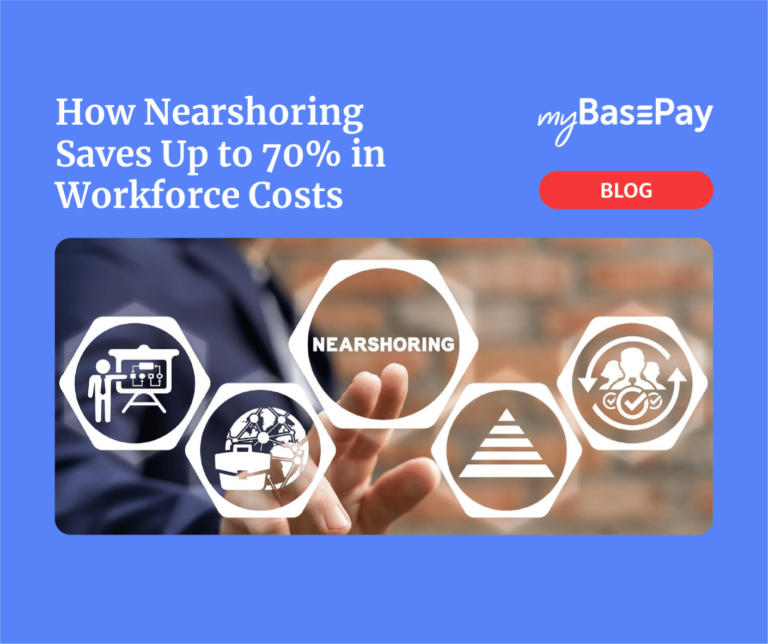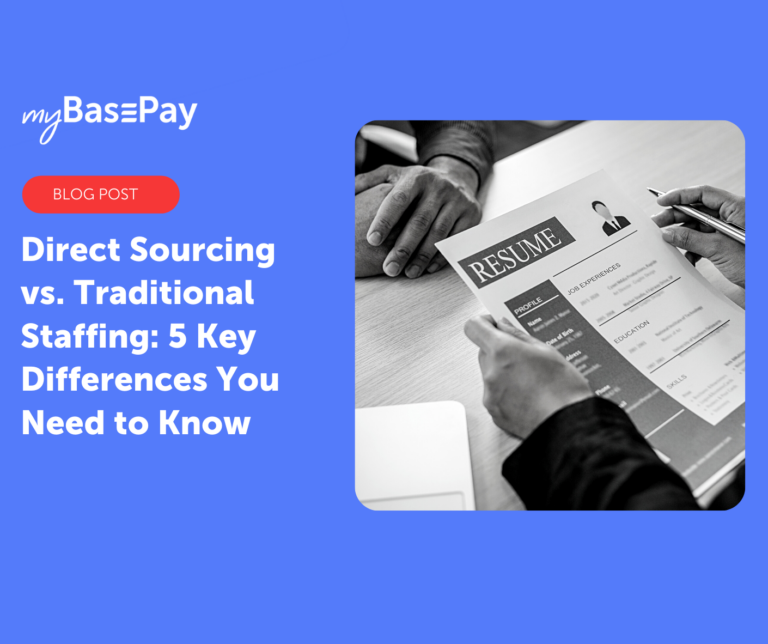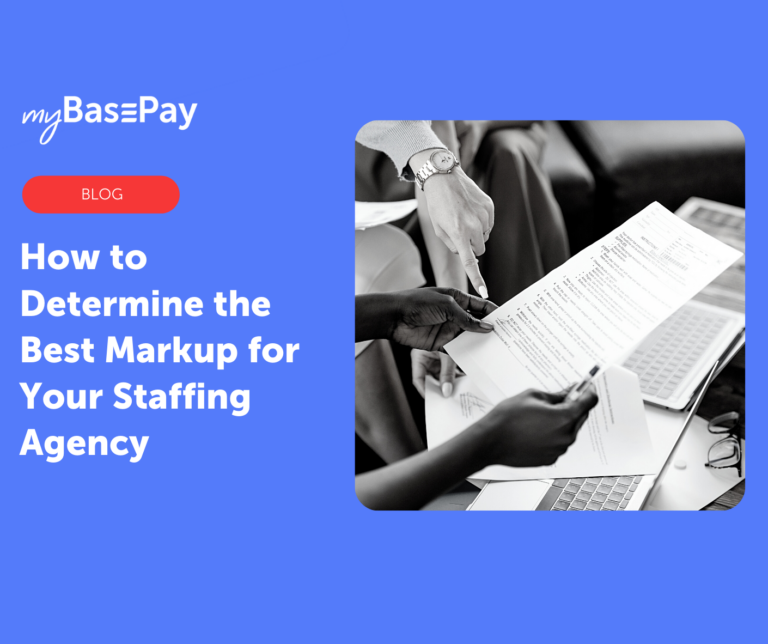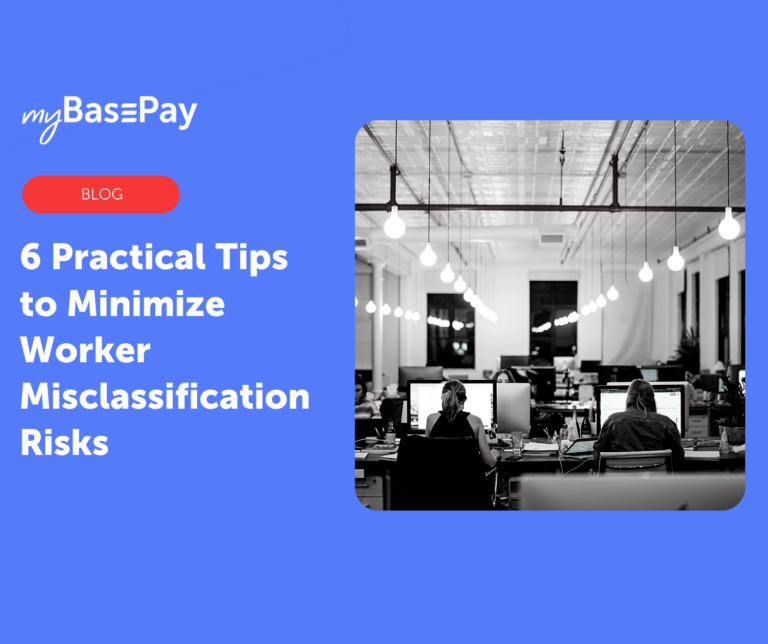Direct Hire vs. Contract Hire: Why a Staffing Agency Should Consider One Over the Other (or Both)
When reaching for top-talent candidates, there are a variety of terms staffing agencies use when describing their hiring strategies. While some companies specialize in direct hire recruitment, others offer contract-to-hire. Occasionally, an agency will allow both recruitment methods.
The recruitment strategy an agency uses is largely dependent on the type of candidate they’re searching for or the service they’re aiming to provide. As the world recovers from the pandemic, hundreds of companies are searching for new talent to add to their team. But whether that means direct hire or contract-to-hire services is up to each company.
Sometimes, a staffing agency doesn’t know which to choose, or which one will most likely benefit their organization. Fortunately, we’ve compared the two strategies and outlined how to determine which one is best for your company.
What Is Direct Hire?
The direct hire strategy refers to the process of hiring a permanent employee. A permanent position is typically a full-time salaried role that offers various benefits; but that isn’t to say direct-hire doesn’t mean filling a part-time role, as well.
According to Glassdoor, “When a person is directly hired for a position, they are hired by the company itself rather than a staffing agency. While a staffing agency may have initially connected you with the position, you’ll report to the company after accepting the offer.”
Depending on the needs, timeframe, and budget of a company, a direct-hire can be recruited through an agency or directly by a company. Either way, once the employee is hired, they immediately report to the employer, go on their payroll, and receive benefits.
For most organizations, direct hire is the preferable staffing method, since companies are searching for long-term employees to join their team. Likewise, most candidates prefer to interview for permanent positions, as it offers more security, a larger opportunity to further their career, more benefits, and oftentimes, a higher salary — depending on the company and the position.
What Is Contract-to-Hire?
Also known as a “temp-hire,” a contract-to-hire strategy is different from a direct-hire process in that there is less immediate commitment. Both contract-to-hire and direct hire are similar in their recruitment process, but the result is that the newly hired individual is not yet a permanent employee.
In the case of a contract-to-hire, a candidate is listed on the staffing agency’s payroll rather than the company. This process allows for greater flexibility for both the candidate and the company, in case one or the other decides to go in a different direction in the future. Once the contract period is completed, the company may choose to hire an individual as a permanent employee, thus receiving the same benefits as a direct hire.
However, it’s important not to get a contract-to-hire confused with an independent contractor.
As Flex Jobs states, “A contract-to-hire role is a W-2 position, and in many respects, you have the same status as a full-time (or even part-time) employee … As an independent contractor, though, you are responsible for making sure the proper taxes are paid to the government on time.”
The duration of a selected candidate’s contract differs greatly from company to company and can last anywhere from a few months to a few years. In most cases, the company has the opportunity to transform the contractor into a full-time employee in the time and manner that best meets the company and the candidate’s needs.
Pros and Cons: Direct Hire
Just as the roles of direct hire and contract-to-hire differ from one another, so do the pros and cons of each. First, let’s dive into the pros and cons of a direct hire. Most companies and candidates prefer a direct-hire strategy, as it offers greater security in the long run. Not only does a selected candidate receive a salary with benefits immediately, but it allows them to further their career within the company.
And since you’re a full-time employee of the organization, your employer is more likely to be invested in your future success. This inevitably promotes loyalty and a sense of community between the candidate and the employer.
However, the direct hire process is typically more time-consuming, which doesn’t make it a cost-effective option for a company looking to recruit quickly. And in today’s job market, employers are hiring at an exponential rate—so the faster, the better. Otherwise, your top-talent candidates will get snatched up by a competing agency.
Additionally, the direct hire process doesn’t allow for a trial period. In the case of contract-to-hire, there is greater flexibility to assess whether or not an individual is the best fit for a full-time role. With a direct-hire strategy, this decision isn’t possible, which requires more time, money, and energy searching for the ideal long-term candidate.
Pros and Cons: Contract-to-Hire
As mentioned earlier, the biggest advantage to contract-to-hire straggles is the ability to assess the candidate. This offers the company time to get to know the candidate and study how they operate with coworkers — but without the immediate commitment that comes with a direct hire.
Plus, for a staffing agency, this gives you control over benefit costs. Since the candidate is technically under your payroll, there is no immediate need to add employees to your benefits program who are currently still in the assessment period.
The contract-to-hire process is also proven to reduce the interview cycle. Instead of going through the lengthy process of interview, follow-up, pause, and repeat, a contract worker requires a shorter screening process — making it an ideal option for firms that urgently need workers.
On the other hand, some job seekers are reluctant to accept a contract-to-hire position, as it offers lower security than a direct-hire role. Especially after the flood of unemployment during the pandemic, many candidates are going to look for a permanent position they can feel confident in. Of course, a contract-to-hire offers the possibility of a full-time position, but it isn’t guaranteed.
And while the entire purpose of a contract-to-hire is to assess the aptitude of a candidate for a long-term position, some companies might re-start the entire process. If an employer chooses not to permanently hire a contractor, a new search must begin — and not many companies right now can afford to do so.
Finding the Right Staffing Strategy
If there’s one thing that we’ve learned from the pandemic, it’s that nothing is ever certain. Full-time employees who had been loyal members of organizations were suddenly laid off. At the beginning of COVID-19, many employers expected to see an increase in contract-to-hire as a response to this overwhelming wave of uncertainty and confusion.
However, as we enter the post-pandemic world, there has been a skyrocket in direct hire placements. Many employers are realizing they need to hire again — and quickly — to maintain any competitive edge, and that security comes from hiring permanent employees. With a fresh new wave of top talent swirling in the candidate pool, staffing firms are noticing greater benefits that come with a direct hire.
Author: Cesar Romero
Cesar is the Head of Marketing at myBasePay, where he’s responsible for overseeing the company’s content marketing, community, and partnerships strategy. He also co-hosts The Ivy Podcast where he interviews executives from Fortune 500 companies on executive leadership. When he’s not helping startups with marketing and community strategy, you can find him paying it forward by serving as a mentor for leading organizations like StartingBloc, Hive, and Global Citizen Year.






